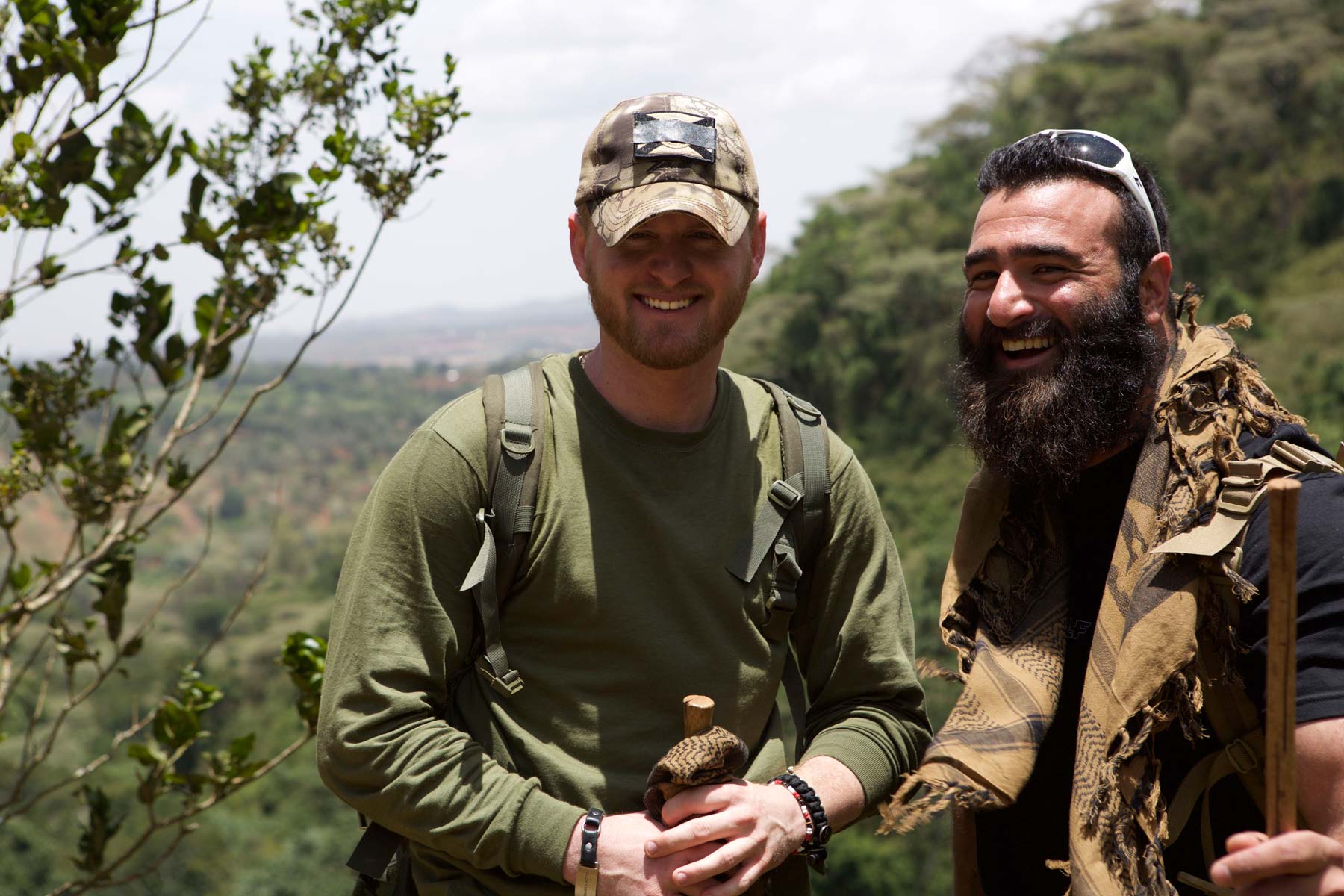Veterans group, led by Plant High grad, targets rhino poachers in Africa by Howard Altman
Original story appears here: http://www.tampabay.com/news/military/veterans/veterans-group-led-by-plant-high-grad-targets-rhino-poachers-in-africa/2336858
For Ryan Tate, a former Marine and a Plant High School graduate, a 2012 documentary on rhino poaching in Africa turned his life in a new direction.
Now, he has dedicated himself to ending the deadly trade in ivory — a pursuit often found at the nexus between organized crime groups and violent extremists.
“The documentary showed a rhino being tranquilized and they put the animal down and sawed its face off and when the animal woke up, it had no face and died a miserable death,” said Tate, 32, who graduated from Plant High School in 2003. “That for me was a turning point.”
Tate said he’d always had an interest in animals. But seeing the rhino suffer, he said, made him wonder how he could use his experience as a Marine infantryman to help.
His curiosity led to the formation of a non-profit called Veterans Empowered To Protect African Wildlife, or VETPAW for short. It’s a group of veterans who use their skills and experience to help train African park rangers and track poachers.
The group is responsible for patrolling some 2 million acres in South Africa, about the size of Yellowstone National Park, and protecting about 300 rhinos.
It’s difficult and sometimes dangerous work, with rangers as well as animals dying. But for Tate, it’s a driving passion.
There have been more than 7,000 rhinos killed by poachers in the last decade, according to SaveTheRhino.org.
“I’m heading back there in about two weeks,” he said. “I want to get out with my guys and provide support.”
•••
Tate is no stranger to hard work or unusual situations.
When he was 10, he could often be found working the ovens in his family’s Davis Islands pizzeria.
“The restaurant industry was interesting,” said Tate, who in February moved to Salt Lake City, Utah. “I learned the proper work ethic.”
Tate worked at the restaurant through high school, but when he graduated from Plant in 2003, he went into the Marines.
“Being around the military in Tampa helped direct my life toward the military,” he said.
So too, he said, did living under the MacDill Air Force Base flight path.
“It was cool watching the fighter jets when I was really young, then the tankers as I got older,” he said.
His family’s proximity to flights over his home took a deadly turn in 2006 when an airplane using nearby Peter O. Knight Airport slammed into his house, killing the pilot, severely injuring the copilot and destroying the building.
Tate was at Camp Lejenue, N.C., at the time.
“I was on the rifle range,” he said. “It was intense. I got 80 phone calls in 30 minutes.”
•••
Tate was in Ramadi, Iraq, during the bloody 2007 surge of troops. A year later, he left the Marines and began working for the State Department in diplomatic security posts in Washington, D.C., and New York.
Then came the documentary and a new pursuit.
Using his own money, he flew to Tanzania in 2013 and began working with park rangers who were fighting poachers.
“We were running and gunning in the bush,” he said. “We were living on concrete floors with them. I learned what they knew and didn’t know and about their culture and about the wildlife as well.”
In spring 2015, backed by donors, VETPAW was created and joined its first mission.
With a team of veterans from U.S. Special Forces, Army and Air Force, VETPAW trained 400 local park rangers and assisted the Tanzanian Wildlife Anti-Crimes Task Force in targeted undercover operations that resulted in the arrest of 50 poaching suspects. The operation crippled several criminal poaching networks, according to the group’s website.
•••
For VETPAW, there have been some ups and downs along the way. In 2015, the organization left Tanzania after controversy arose over, among other issues, a former associate’s comments about using violence.
But the group reorganized, and now patrols more area, protects more animals and has a fleet of aircraft, vehicles and drones it owns, said Tate. He also maintains a database of 10,000 veterans who want to join VETPAW.
The group has the backing of people like Jessica Schwarzkopf, daughter of the late U.S. Central Command boss Gen. Norman Schwarzkopf.
“There are many reasons to be excited about this organization,” said Schwarzkopf. a Tampa resident. “Ryan is a wonderful guy. My father was very much into conservation and loved Africa.”
VETPAW, she added, has been a welcome venue for veterans seeking work in a field similar to what they did in uniform.
“We are very protective of our family name,” Schwarzkopf said. “Before any of us get involved with a project, we talk about whether it falls in line with my father’s principles.”
Schwarzkopf said she is planning a trip to Africa soon to see VETPAW’s work firsthand.
•••
VETPAW teams are organized much like a U.S. Special Forces “A” team, Tate said. A group of about 12, each member with a particular military speciality, deploys to South Africa, where they patrol and help train local forces on basic tactics and techniques.
Tate said he splits his time between trips to Africa and raising funds and awareness. He hopes to engage Tanzanian officials soon to see if there is a way to help out there.
Officials from South Africa and Tanzania did not respond to requests for comment for this story.
“We have a really cool counter-poaching academy,” Tate said. “We have helicopters, planes, off-road vehicles, everything we could have asked for. We overcame the storm that was and are stronger.”
Contact Howard Altman at haltman@tampabay.com or (813) 225-3112. Follow @haltman.

